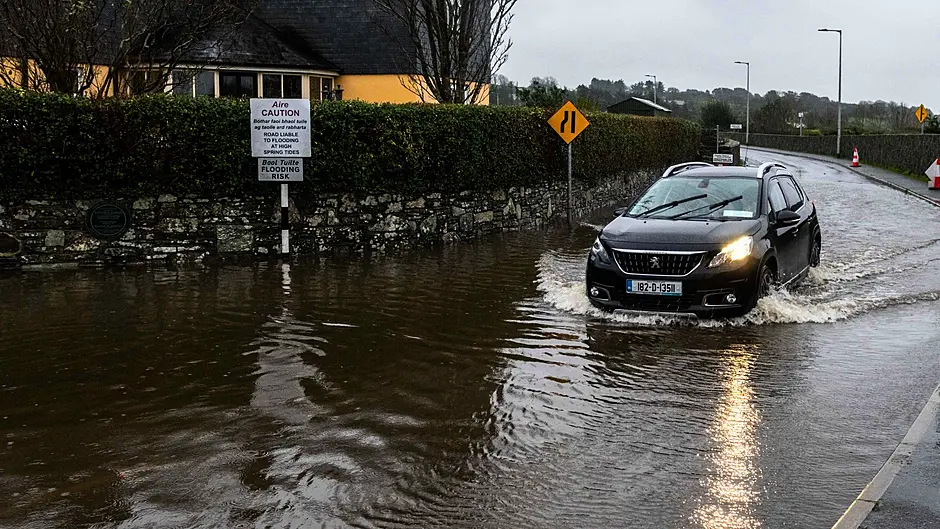MACROOM has been chosen as a pilot project to monitor carbon emissions, as part of Cork County Council’s new Climate Action Plan.
Establishing the town as the county’s first ‘decarbonising zone’ is just one of the priorities of the ambitious five-year plan, published this week.
While most of West Cork escaped the worst of last week’s floods, the Council is still counting the cost of extensively damaged homes and businesses in East Cork, but also extensive road damage throughout the county, including many roads around West Cork, as well as homes and businesses in Ballinhassig and Riverstick.
The ambitious plan aims to help the Council work to curb the effects of a warming climate, which will also bring more rain to the region. It details how the Council will take action to meet national targets, amid fears of more climate-related weather events in the future. The draft report says agriculture currently accounts for the largest share of emissions in the county – accounting for 43% of all carbon emissions.
Transport, commercial and manufacturing, industrial processes, and residential sectors each contribute approximately 15%, 13%, 11%, and 10% respectively.
The county’s population (358,898) is expected to increase by 66,000 by 2031, meaning 22,600 new housing units will be needed by 2028, and associated infrastructure.
In the wake of the devastation caused by Storm Babet, the Council says projections indicate an increase in the frequency of heavy rainfall days for Co Cork with some areas projected to see increases of up to 52%. This will likely result in more river and surface water flooding. It also predicts a rise of up to 0.26m in sea levels along the Cork coast, which will also lead to more flooding and coastal erosion.
Macroom was chosen for carbon monitoring based on its socioeconomic and physical environmental characteristics, the Council says, to see what is possible for decarbonisation and climate action at a local and community level.
Among the objectives set out for the town is achieving a low carbon housing stock by rolling out new energy systems and smart meters; optimising the energy efficiency of existing buildings; the provision of more EV charging facilities and trialling better public recycling options. The Council wants the public’s input before November 27th as part of the second stage of the plan.
The third stage will take the submissions into account before the finalised Climate Action Plan is adopted by Council in January. The local authority is required by statute to adopt the plan before February 2024.
Meanwhile, Senator Tim Lombard (FG) has described as ‘reckless’ Sinn Féin’s attempt to remove crucial legislation that allows the OPW to provide critical maintenance to the country’s rivers.
He said Sinn Féin wants to abolish the Arterial Drainage Act, which allows the State to provide for the drainage and improvement of land and implement flood relief schemes to ensure cities, towns and villages are protected.
Local TD Michael Collins (Ind) claimed that ‘years of government neglect, paltry and inadequate roads funding and tortuously protracted flood relief processes’ had contributed extensively to the devastating damage brought about by flooding in many parts of Cork, particularly in Midleton, last week.










